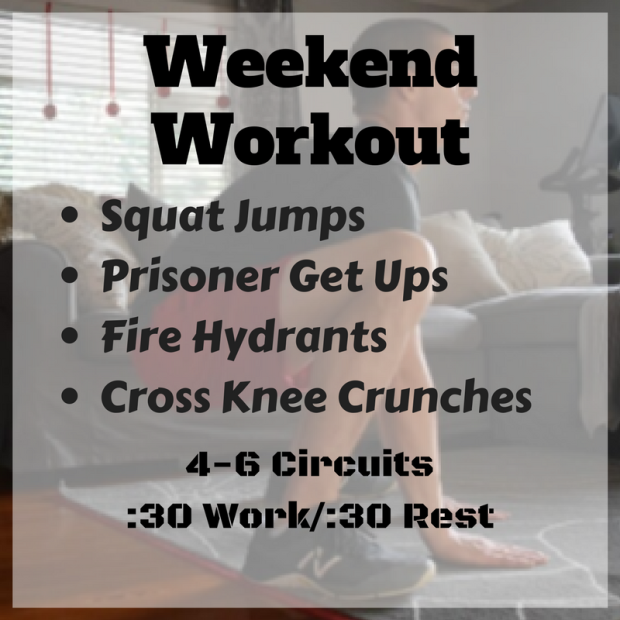The Shannara Chronicles continues to improve in its second season, giving us a strongly entertaining episode in “Dweller.” I’m a little skeptical of just how much plot is happening per episode in this show, just, you know, in general, and there’s a lot going on in “Dweller,” but it all, somewhat miraculously, worked this week. The show has a tendency to use a lot of storytelling shorthand, and that’s apparent in every storyline in this episode, but most of that shorthand is smart, and the couple of groanworthy instances of coincidence that do pop up are pretty forgivable ones. There’s also a higher than Shannara-average amount of genuinely good acting in this episode, which helps solidify the emotional beats, though there are still a couple that don’t quite land on target. It’s not perfect, but “Dweller” is about as good as The Shannara Chronicles gets.
**Spoilers ahead!**
Bandon (and Tamlin) (but mostly Flick)
The episode opens with Queen Tamlin being visited by Bandon, who is there to tell her that the Warlock Lord hasn’t forgotten the debt she owes him. Apparently, Tamlin was young and new to ruling during the last war against the Warlock Lord, and she bargained with him to help her people and preserve her kingdom. It’s not clear exactly what the terms of the agreement were, but it seems this is a piper who demands to be paid. What will be interesting to see in the coming weeks is whether the threat of the Warlock Lord drives the scheming Tamlin to a genuine alliance with the elves or if she’s going to try for a better deal with the forces of darkness.
The rest of Bandon’s considerable screen time in “Dweller” is spent making his way toward Paranor with Flick Ohmsford. When they stop to take a break so Bandon can get shirtless and show off how ripped he is, Flick tries to make the case that people are actually okay and that maybe bringing back the Warlock Lord isn’t a great idea. Bandon’s a true misanthrope though, and his counterpoint is that people are terrible and Allanon in particular is the worst. To prove his point, Bandon takes Flick on a detour to a farm we soon learn is Bandon’s childhood home. It’s been fixed up a bit since demons wrecked the place in season one, and there’s a new family living there. Bandon approaches the family to ask if he and his “uncle” could get food and lodging for the night and they’re happy to help the travelers, but over dinner Bandon’s simple question about what the family thinks of magic-users elicits a violently hateful response. Worse, it becomes clear that the family knows the story of their home’s previous inhabitants; they’ve even saved the disgusting muzzle Bandon’s own parents had forced on him. It’s not terribly surprising when things take a scary turn. Bandon conjures winds to push the farmer and his wife against the wall of the abode, and he captures their tween son, forces the muzzle on him and then squeezes the boy’s neck until blood starts coming out of the kid’s mouth and nose.
And this is one of the emotional beats that doesn’t quite land the way it seems to be intended. It seems as if we’re supposed to consider Bandon’s experiment here seriously. He basically bet Flick that these common people, of the sort that Flick insists are mostly decent folk, aren’t and that he can prove it, and in a sense Bandon succeeds at this when he prompts the family about magic and their murderous opinions about magic-users come right out. Like many fearful people, this family is full of hateful opinions about what they don’t understand, and they think safety will come from destroying the object of their fear. However, Bandon’s moral reasoning here is childish and simplistic. It’s not ignorant farmers who murder magic-users and craft discriminatory policy, though they may support political or military leaders who do. It’s bad systems that foster ignorance in a populace, allow bigotry to take hold in government, and fail to root out abusers of power. It’s difficult to take Bandon’s grievance seriously when it’s so clearly a case of misdirected rage. Bandon has been a victim of some real injustice, and he’s also been a victim of bad luck, but this family isn’t the agent of his pain, even if they do have some terrible opinions.
Bandon’s decision to kill the young son, in particular, makes it difficult to give much merit to Bandon’s point of view. It’s an especially brutal death and filmed in almost lascivious detail, often focusing on the face of the boy while he’s being murdered, but it’s through dialogue while the murder is occurring that Bandon makes his final point, such as it is. The farmers opined that the son of the previous family was just “born damaged,” and Bandon repeats those words back to them as he murders their child. This is framed as irony, but also as real pathos; Flick’s face as he watches Bandon is sad, and it seems that the audience is also supposed to feel saddened and sympathetic towards Bandon. It’s a moment that doesn’t work for me and shouldn’t work for most people. Bandon is killing a child. Because he’s mad that people dislike and distrust magic. And he’s mad about his parents and about Allanon. But he’s using magic to kill a child in front of the child’s parents. It’s nonsensical. It’s not sympathetic. It’s actually heinously evil, and the only thing Bandon’s actions here should have proved to anyone is that, yeah, magic is powerful and dangerous, but also that Bandon is stupidly, senselessly cruel.
I just don’t have a lot of patience for these sorts of narratives these days, especially when the parallels to real-world current events are as unsubtle as they are here. Any urge the viewer might have to cheer Bandon on for murdering a child to punish the child’s bigoted parents is an ugly urge that ought to be tamped down rather than encouraged. Flick may be overestimating the goodness of the common people, but murdering children isn’t the moral equivalent of being poorly informed and frightened of magic, especially when another major theme of this show is that magic actually is dangerous, that it has a price, and that it’s important that magical power doesn’t fall into the wrong hands. This whole storyline in this episode is a messy metaphor that doesn’t stand up to scrutiny and tries to require the viewer to accept the absurd proposition that Bandon and this family of farmers are essentially moral and ethical equals. It’s a nasty case of both-sides-ism that is as frustrating as it tries to be timely.
General Riga
We don’t see much of Riga this week. There’s just one short scene that pops in back at Graymark to see how he’s taking the apparent loss of his entire force of men there. Trackers were sent after Allanon and his friends after they escaped, but they’ve been unsuccessful. In a fit of rage, Riga kills the man who brought him this bit of bad news and then tells his single remaining lackey that they need to contact Edain to hurry up the shipment of weapons they’re supposed to be getting from Leah. My biggest question here is: who is going to use all those weapons? It looks like Riga and this one captain or whatever are literally the last men standing at Graymark.
Eretria, Garet Jax, Ander, Lyria and Leah
Right after the opening credits, the group that escaped from Graymark last week is already splitting up, with Eretria and Garet Jax being sent to Leah. At Graymark, they realized that all of the Crimson soldiers were using weapons made of Leah steel, which suggests a secret alliance between Riga’s forces and the human kingdom. On the road, Garet Jax wakes up from a nightmare and discloses a little more of his backstory to Eretria, though it’s not much more than we already knew about his being part of the Border Guard and surviving a massacre. When the pair arrive in Leah, they find Ander, who’s worried about Catania and starting to be suspicious of Edain, getting sort-of rejected by Lyria, who is professing her love for Eretria. Seriously. In an obvious piece of plot convenience theater, Jax and Eretria show up right as Lyria is telling Ander that she’s in love with Eretria. It’s silly, but I like Eretria and Lyria, so I’m willing to accept it.
The news and evidence that Eretria and Jax bring about the weapons the Crimson are getting from Leah alarms Ander, but he never doubts them. It’s actually kind of impressive how easily he believes them about Edain’s treachery, and the elf king is quick to come up with a plan that allows them to catch Edain in the act of moving weapons from Leah to the Crimson. It’s not clear how much information they get out Edain and his co-conspirators, but it does seem that Queen Tamlin is working hard to maintain enough plausible deniability to avoid being implicated. She claims that she had no knowledge of Edain or his activities, and she even organizes the execution of Edain and the Leah men he was working with—though it’s Ander who actually executes his former friend.
The final scenes in Leah this week are Lyria and Eretria and then Lyria and her mother. Eretria is leaving Leah again to go help Wil, but before she goes she advises Lyria to rethink her relationship with Tamlin. Eretria points out that Tamlin needs Lyria more than Lyria needs her mother, and this gets the wheels in Lyria’s head turning. After Eretria is gone, Lyria goes to Tamlin and tells her mother how things are going to be from now on. It seems that Lyria is going to pull the trigger on marriage to Ander after all, but she makes it very clear to Tamlin that she intends to be a real ruler and that Tamlin will have to earn her as an ally. I’m starting to get very worried about Lyria’s lifespan, though. Tamlin seems to have at least some real love for her daughter, but she’s also got the threat of the Warlock Lord to worry about, and Ander already has two dead girlfriends, one of them a black woman. It also increasingly feels as if Eretria and Wil are the show’s endgame couple, which would be in line with the books. Sure, the show is rather famously divorced from the source material, but still. I’m going to be extremely pissed off if Lyria ends up fridged to make way for Wil and Eretria to pair off.
Wil, Allanon and Mareth
While Eretria and Jax head of the Leah, the rest of our heroes are off to Paranor, where they hope to rescue Flick. First, though, Mareth approaches Allanon about his being her father, which he denies and rather cruelly rejects her, refusing to even consider training her to control her magic, which is really all she wants. Allanon insists to Wil that the druid sleep ought to have made him infertile, and it made me actually cackle to imagine a younger Allanon telling Mareth’s mom that they don’t need to use condoms because he’s totally infertile, only for her to find out a couple months later that he was incorrect. I can’t help it. It’s just such a line, and Allanon is being such an asshole to Mareth. I mean, even if he doesn’t believe she’s his daughter, he could still help her out with her magic problem since that’s kind of his job and a moral imperative or whatever. Instead, he’s just kind of a dick to her throughout the episode.
It’s a great week for druid detours, though Allanon’s isn’t as sinister as Bandon’s. Allanon is taking Wil to retrieve the Sword of Shannara, which is hidden at the grave of Wil’s father, Shae. The elder Ohmsford’s final resting place is inside a huge, beautiful cave that, from the top, looks like a giant vagina surrounded by trees, which isn’t at all a heavy-handed bit of visual language suggesting rebirth. However, before Wil can get his dad’s sword and symbolically come of age and power as he raises up an inherited phallic symbol he has to defeat the huge tentacle-spider—the titular “Dweller”—that stalks the cave in a sequence that’s shamelessly cribbed from Peter Jackson’s Lord of the Rings.
 I’m not even kidding about the vagina cave.
I’m not even kidding about the vagina cave.
I poke a little fun, but I loved this stuff. The vagina tree cave is hilariously on the nose. The visual and even auditory references to the Shelob sequence from The Return of the King are such an obvious homage to a good movie that it’s hard to get mad about them. There’s some great banter and a lot of evidence that Austin Butler is growing as an actor. The Dweller doesn’t look bad; at the very least the compositing is competent so that it feels like there’s a real creature in the scene with decent lighting. The defeat of the Dweller through teamwork was nice. Shae Ohmsford’s “grave” is baffling (I have so many questions), but it looks awesome, and the Sword of Shannara is another great-looking prop. Most importantly, for all that there’s a lot of story and character stuff crammed in here, it never feels perfunctory or rushed and it all makes a reasonable amount of sense if you’re willing to suspend your disbelief and enjoy the high fantasy of it all.
Miscellany:
- Eretria stole the Elfstones back for Wil when they were at Graywatch, which answers my question from last week, but her explanation was basically “I saw these sitting around and thought you might need them” and that is deeply silly and really stretches the limits of what you can get away with having happen off screen.





